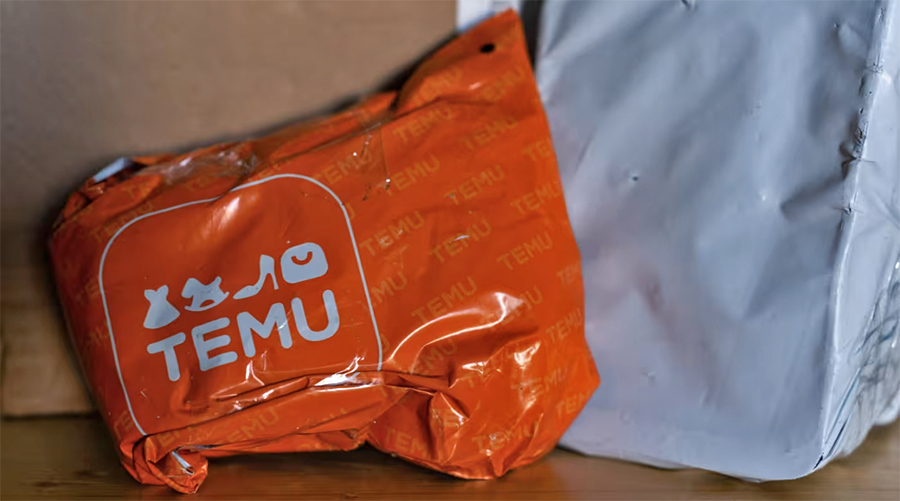The Biden Administration took new actions on Friday, September 13 to disrupt efforts by China-founded e-commerce platforms to ship goods into the U.S. while escaping tariffs under current de minimis exemption rules. The move would also reportedly benefit U.S. retailers, brands, manufacturers, and employees by limiting lower-priced goods shipped directly to U.S. consumers from Chinese e-commerce companies, including Temu and Schein.
The Administration portrayed the actions as an effort to protect American consumers, but it needs to clarify how this benefits U.S. consumers. Vice President Harris, running as the Democratic Party candidate for U.S. President, has recently argued that tariffs hurt U.S. consumers as they increase prices.
A shipment is eligible for the de minimis exemption if the aggregate fair retail value of the articles imported is $800 or less. De minimis shipments enter the U.S. with less information than other imports and are not subject to duties and taxes.
“The majority of shipments entering the United States claiming the de minimis exemption originate from several China-founded e-commerce platforms, putting American consumers at risk, undercutting American workers and businesses, and resulting in the importation of huge volumes of low-value products such as textiles and apparel into the U.S. market duty-free,” the Administration said in its Friday media release.
Over the last ten years, the number of shipments entering the United States claiming the de minimis exemption has increased from approximately 140 million shipments per year to over one billion shipments annually.
The Biden Administration said this exponential increase in de minimis shipments makes it more challenging to enforce U.S. trade laws, health and safety requirements, intellectual property rights, and consumer protection rules and would block illicit synthetic drugs, including fentanyl and synthetic drug raw materials and machinery, from entering the country.
At issue are foreign entities using the exemption rule to circumvent U.S. trade enforcement actions intended to level the playing field for American workers, retailers and manufacturers by shipping small packages directly to American consumers without paying tariffs.
In its letter, the Biden Administration also called on the U.S. Congress to pass legislation in 2024 to comprehensively reform the de minimis exemption further to protect U.S. businesses, employees and consumers.
The Administration said it intends to issue a Notice of Proposed Rulemaking that would exclude from the de minimis exemption all shipments containing products covered by tariffs imposed under Sections 201 or 301 of the Trade Act of 1974 or Section 232 of the Trade Expansion Act of 1962.
The Biden Administration claims that Section 301 tariffs cover approximately 40 percent of U.S. imports, including 70 percent of textile and apparel imports from China.
If the action were to become final, “301” goods would not be eligible for the de minimis exemption and would cost more post-action, providing a fair comparison to goods sold by a U.S. retailer or brand that has paid tariffs on those goods if shipped in bulk from China. It could also provide an upside for U.S. manufacturers to sell products tariff-free in the U.S.
This regulatory action will also propose to require specific, additional data for de minimis shipments, including the 10-digit tariff classification number and the person claiming the de minimis exemption, which would improve the targeting of de minimis shipments and facilitate the expedited clearance of lawful de minimis shipments.
The proposed regulatory changes would also clarify who is eligible for the administrative exemption and require filers to identify the person on whose behalf they are claiming it.
Additionally, the Biden Administration said it is taking action to protect American textile and apparel manufacturers, pointing out that the industry plays a critical role in the U.S. defense industrial base and supports hundreds of thousands of direct and indirect jobs in the United States.
“U.S. textile and apparel manufacturers are facing unfair competition from several China-founded e-commerce giants, as these companies take advantage of the de minimis exemption to ship huge volumes of textile and apparel products to American consumers,” the White House wrote in its statement.
The Biden Administration said it would also explore ways to increase procurement of certain textile and apparel products across agencies to ensure that U.S. taxpayer dollars support U.S. jobs in the sector.
“The Administration continues to prioritize enforcement efforts against illicit textile and apparel imports through intensified targeting of small package shipments, joint trade special operations, increased customs audits and foreign verifications, and the expansion of the Uyghur Forced Labor Prevention Act (UFLPA) Entity List,” the statement said.
















